Class IV
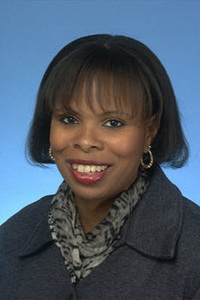
Tamara Coyne-Beasley
Former Professor, Pediatrics
Current Professor of Adolescent Medicine at the University of Alabama at Birmingham
In 2010, Dr. Coyne-Beasley established the North Carolina Child Health Research Network as part of the North Carolina Translational and Clinical Science Institute to build partnerships between community organizations, community-based and ambulatory practices, and research communities. With these partnerships, collaborative research is conducted to maximize the translation of scientific discoveries into real world applications for the advancement of child and adolescent health. As the network director, she is currently engaged in multiple projects with adolescents in western and central North Carolina. Coyne-Beasley is focused on testing the effectiveness of school-based telemedicine programs, texting and social media for increasing knowledge of human papilloma virus disease and related-cancers, and increasing adolescent access to healthcare including human papilloma virus vaccination.
“The Faculty Engaged Scholars program allowed me to have interactions with like-minded faculty from a variety of disciplines around the issues associated with service and engaged scholarship. Through this interaction, I learned additional methods to interact more effectively with communities in engaged scholarship and developed relationships with other multidisciplinary collaborators across campus who can offer new insights and perspectives on my work in the field of child and adolescent health.”
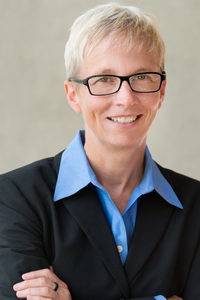
Barbara Fedders
Assistant Professor, Law
Barbara Fedders teaches and supervises law students who represent youth in North Carolina delinquency cases. Her scholarship focuses on improving policies, practices and legal representation for young people in the child welfare and delinquency systems. She serves on the advisory board for the Equity Project, a national organization promoting policy and practice reforms for lesbian, gay, bisexual and transgender youth in the juvenile justice system, and helped produce a report for stakeholders. At the state and national level, Fedders trains lawyers on incorporating clients’ educational histories and using education law in delinquency representation. In collaboration with an education lawyer, she is producing a practitioners’ manual based on those trainings. Her project examined so-called “gender-responsive” programming in youth facilities and will propose best practices that incorporate feminist and queer perspectives.
“The Thorp Faculty Engaged Scholars program exposed me to brilliant faculty from across the university who share a commitment to producing scholarship that is both rigorous and relevant to people outside the academy. The interdisciplinary program helped me think of new ideas for my own work–both in terms of research and publication–that I wouldn’t have otherwise. I am enormously grateful to the Carolina Center for Public Service for giving me this opportunity.”
For current information on Barbara Fedders, visit her faculty page.
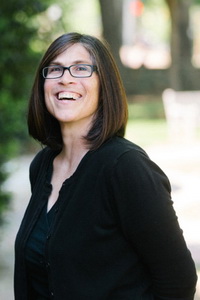
Jocelyn Glazier
Associate Professor, Education
Dr. Jocelyn Glazier’s research focuses on exploring the impact of experiential pedagogy on teacher and student learning, particularly with regard to minority populations. In her project, Glazier worked with a group of teachers from different schools in what she has called a Teacher Collaborative (TC), a space where teachers work with one another to study experiential teaching and learning in their own classrooms. In addition to honing practice, teachers in TCs learn together how to assess the impact of these approaches on their students and share their findings with colleagues and stakeholders, empowering both each other and their students in the process. Through their involvement in the project, the eight teacher participants have stepped out of the comfort of more didactic teaching, engaging their own students in experiential learning that impacts their schools and local communities. Glazier hopes that TCs become the spaces that foster school transformation and halt the trend of teacher attrition in high-need schools in particular.
“Participating in the Faculty Engaged Scholars program has enabled me to better understand the concept of engaged scholarship, particularly its multiple and varied forms. There’s no one way into and through engaged scholarship. Hearing about my colleagues’ work has really expanded my understanding of the extensive and limitless boundaries of engaged scholarship. In addition, the conversations with other engaged scholars about the challenges of doing this sort of work in the university context has helped me feel less alone in the struggle to justify long hours spent in the field with teachers and in analysis of the rich qualitative data produced in and through this work.”
For current information on Jocelyn Glazier, visit her faculty page.
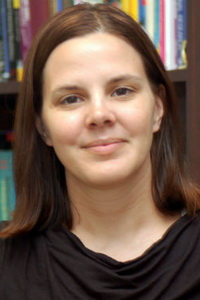
Leigh Hall
Former Associate Professor, Education
Current Professor of Education at the University of Wyoming
Dr. Hall addresses issues relevant to adolescents’ literacy development and particularly those that have been labeled as having reading difficulties. Her project centered on creating an online community for teachers to help them examine how patterns in their teaching did or did not support students’ academic literacy development and how to reconfigure their instruction in ways that would do so. Teachers received regular input and feedback on their ideas from each other, Hall and graduate assistants. As a result, teachers engaged in a form of professional development that was highly meaningful and strongly connected to the issues in their own practice.
“Throughout my work in the community, I have been challenged to help teachers find their voice in advancing literacy efforts in their classrooms. The collaborative work in the Faculty Engaged Scholars program taught me strategies about how to empower teachers to be more effective in the classroom. Extending my impact has been rewarding both personally and professionally.”
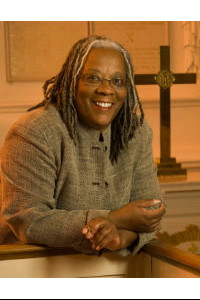
Jill Hamilton
Former Assistant Professor, Nursing
Current Associate Professor of Nursing at Emory University
Dr. Hamilton is published on topics related to social support, religion and quality of life among African-American cancer survivors. She was a Georgia Cancer Coalition Distinguished Cancer Scholar from 2003-2007 and a Faculty Scholar at the Center for Spirituality, Theology & Health at Duke University. Hamilton was also the recipient of the 2011 Oncology Nursing Society (ONS) Publishing’s Division Award for Excellence in Writing Qualitative Research. Hamilton’s research interests include health disparities, social and cultural factors that influence health, and the coping strategies used among older African-American cancer survivors and their families. She has developed measures of preferred coping strategies and spirituality, and is currently exploring the sociocultural factors that influence how older African-Americans use social support and religion/spirituality as mental health promoting strategies when there is a diagnosis of cancer.
“Expanding my current relationships and developing new ones for the purpose of expanding collaborative and interdisciplinary relationships was an incredible benefit of being involved in the
Faculty Engaged Scholars program. Merging my research with scholars in related fields added a depth to my research that was invaluable.”
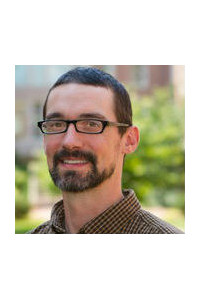
Brian Hogan
Teaching Professor, Chemistry
Dr. Hogan is a research assistant professor in chemistry, the department where he received his Ph.D. in 2003. He is the academic director for the Scholars’ Latino Initiative, a program dedicated to increasing college access to Latino high school students. Dr. Hogan’s research focuses on increasing the number of Latino and Latina students graduating in the science, technology, engineering and mathematics (STEM) fields. He spent the past two years as a Thorp Faculty Engaged Scholar building “SLIence,” a collaboration with McDougle Middle School and the Scholars’ Latino Initiative. Each week, six to eight Latino science majors work with the middle school after-school program, Las Guapitas y Los Caballeros Guapos, to bring STEM outreach and mentoring to the sixth to eighth-grade students. The program has been asked to expand to Carrboro High School next semester to work in collaboration with Juntos and the Carrboro Latino Parents Association. “
“Through the Faculty Engaged Scholars program, I interacted with community activists and other mentoring program leaders that deal with socioeconomically disadvantaged populations, allowing me to make my mentorship program better. Because of the collaborative nature of the FES work, I observed, learned and ultimately integrated proven leadership models from other community-based initiatives into my work.”
For current information on Brian Hogan, visit his faculty page.
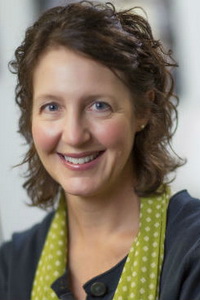
Shawn Kneipp
Sarah Frances Russell Distinguished Term Professor, Nursing
Dr. Kneipp conducts research of health disparities and social determinants of health. Most of this work has focused on health conditions and unmet needs of women in welfare-to-work programs in the United States, where symptoms associated with chronic health conditions pose significant barriers for women as they attempt to become economically self-sufficient. In 2010, Kneipp led a public health nursing case management intervention study with women in Florida that improved health and employment outcomes for women in a welfare-to-work program. In collaboration with community partners, her current projects focus on improving longer-term health and employment conditions using peer-mentored problem solving methods and examining the role of minor criminal offense charges as both barriers to self-sufficiency and social determinants of health.
“Being a Faculty Engaged Scholar connected me to other colleagues at UNC who have a community service orientation in their scholarly work. I learned about practices and projects that have fostered positive university-community relationships. The program provided the intellectual, collegial and financial support needed to foster the development of a new area of research and expand my prior community-engaged work to include community and academic partners in my new academic setting. As a result, our team has received additional NIH funding to continue our research, which will help us understand whether, and how intersections between criminal justice, labor market, and social service systems and policies adversely affect the health of socioeconomically disadvantaged women.”
For current information on Shawn Kneipp, visit her faculty page.
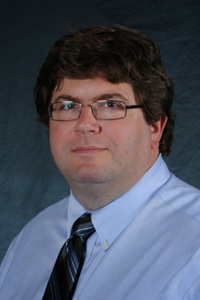
Roger Mills-Koonce
Associate Professor, Center for Developmental Science Community Partner: Family Diversity Research and Service Initiative
Dr. Mills-Koonce is the co-founder and co-director of the Family Diversity Research and Service Initiative (www.FDRSI.org), a joint initiative between researchers and clinicians at UNC-Chapel Hill and Duke University to expand the scope of research on issues faced by lesbian, gay, bisexual and transgender (LGBT) persons, as well as provide resources and information on community and mental health support services for LGBT individuals and family members. Much of Dr. Mills-Koonce and the FDRSI’s research focuses on include LGBT parent-headed households and the role of family processes in both protective and risk factors for the development of LGBT youth and young adults.
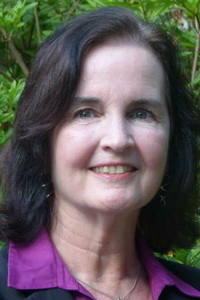
Linda Watson
Professor, Allied Health Sciences, Speech and Hearing Sciences
Dr. Watson’s area of scholarship is autism research, addressing issues of early development, early identification and social-communication interventions. As a Thorp Faculty Engaged Scholar, she sought to increase engagement with varied stakeholders across multiple projects. One current project is testing the efficacy of a school-based intervention for preschoolers with autism. Watson’s team previously developed this intervention through an iterative process of collaboration with public school educators. Also, through her role as a reviewer for the Institute of Education Sciences (which has funded this research), Watson has been able to provide feedback to grant applicants on stakeholder engagement and to advocate for such engagement as a quality indicator for intervention development proposals. Another project Watson devoted attention to is a collaborative effort with stakeholders in Bolivia with an interest in improving autism services there. Among other activities, Watson and a Bolivian collaborator secured a memorandum of understanding signed by administrators at their respective universities and have begun preliminary planning for sustainable ways to address community-identified needs for greater autism awareness and expertise in Bolivia.
“As a researcher, I have been aware of the slow progress in translating from research to practice. Recently I have become aware that this slowness likely results in part from thinking of the translation process as moving only in one direction. Thus, engaging with community stakeholders throughout the research process has become a priority for me. I have been inspired by the commitment, energy and diverse creativity of my classmates in the Faculty Engaged Scholars program. Along with the inspiration, I have gained concrete ideas for engaging with those who have a stake in my scholarship, and look forward to continuing to infuse these ideas into my future work in the field of autism.”
For current information on Linda Watson, visit her faculty page.
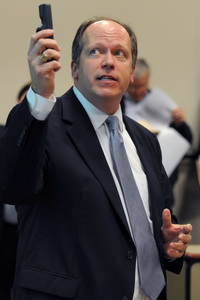
Ted Zoller
T.W. Lewis Clinical Professor, Business
Professor Zoller is director of the Center for Entrepreneurial Studies and associate professor of strategy and entrepreneurship at the Kenan-Flagler Business School. Zoller is the founding instructor of Launching the Venture, a start-up creation program that increased the number of spin-offs from UNC-Chapel Hill. His research focuses on the social capital implications of entrepreneurial economies with emphasis on the social networks of new founders and their investors. Zoller’s project entailed developing a comprehensive analysis of the social capital of the Research Triangle Park and the engagement of the network of UNC entrepreneurial social capital in the North Carolina economy. The Blackstone Foundation recognized this work as the basis of a new intervention to increase the performance of regional entrepreneurial networks through the Blackstone Entrepreneurs Network (BEN), now established in Research Triangle Park. Based on project outcomes, the Blackstone Foundation issued UNC a $1.1 million grant to replicate the Blackstone Entrepreneurs Network nationally. UNC will serve as the university partner in building a replication program and in taking the BEN concept nationally.
“The Thorp Faculty Engaged Scholars program opened my eyes to the dramatic needs of the state of North Carolina and the importance of core economic insights to unlock its long-term economic prosperity. This experience served to raise the stakes and motivate my work at a higher level to make sure that it wasn’t just another unread analysis, but instead a call to action. I learned that not only can sound research result in important insights, but as a tool of transformation. This project served to distill in me a passion to serve our citizens by promoting the economic prosperity of the state of North Carolina.”
For current information on Ted Zoller, visit his faculty page.
